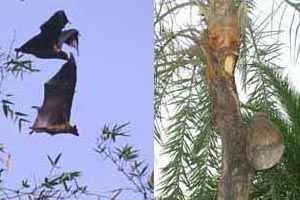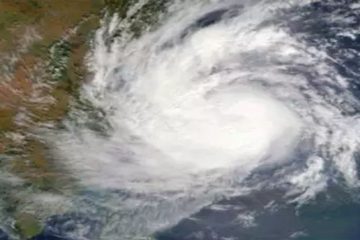 The deadly Nipah virus has been identified as the culprit behind the mysterious disease that claimed more than a dozen lives in Lalmonirhat, over the last few days. Mahmudur Rahman, the director of the Institute of Epidemiology, Disease Control and Research (IEDCR), confirmed the finding.
The deadly Nipah virus has been identified as the culprit behind the mysterious disease that claimed more than a dozen lives in Lalmonirhat, over the last few days. Mahmudur Rahman, the director of the Institute of Epidemiology, Disease Control and Research (IEDCR), confirmed the finding.
According to Rahman, the disease is referred to as encephalitis, in medical terminology and leads to inflammations in an affected person’s brain. The virus spreads through consumption of date palm juices or fruits half-eaten by infected fruit bats. The official death toll has been pegged at 14, while 22 others have been identified as infected, till Friday evening. Rahman waved aside media reports that claimed a higher death toll, terming them as speculative.
However, area residents claimed that at least 19 people have died, as of Friday. Bimal Kumar Roy, a physician at Hatibandha Upazila Health Complex, put the number of those infected at 50.
Meanwhile, the civil surgeon of Lalmonirhat said that a team of experts, from Dhaka, was working to contain the outbreak, along with area health workers.
The disease, experts said, is quite common in regions like south-west Faridpur, Madaripur and Rajbari. The government already has monitoring mechanisms in place, in these areas.
According to experts, the virus spreads mostly during the period between December and April, when jars are fixed to date palm trees, to collect juice. The virus spreads when infected bats perch on the jars and leave saliva and droppings, containing the deadly virus, into the juice.
The virus enters the human body when someone drinks contaminated date palm juice and is then freely transmitted among human beings. Scientists at the IEDCR have already advised against drinking unprocessed date extracts, to prevent the spread of the disease, which has a 75% mortality rate.
According to the World Health Organisation (WHO), there is no treatment or vaccine available for the disease. In Bangladesh, half of the cases reported between 2001 and 2008, were caused by human-to-human transmission of the Nipah virus, a WHO document noted.
According to Rahman, the virus claimed 113 lives between 2001 and January 2011. The most severe outbreak was in 2004, he added.






